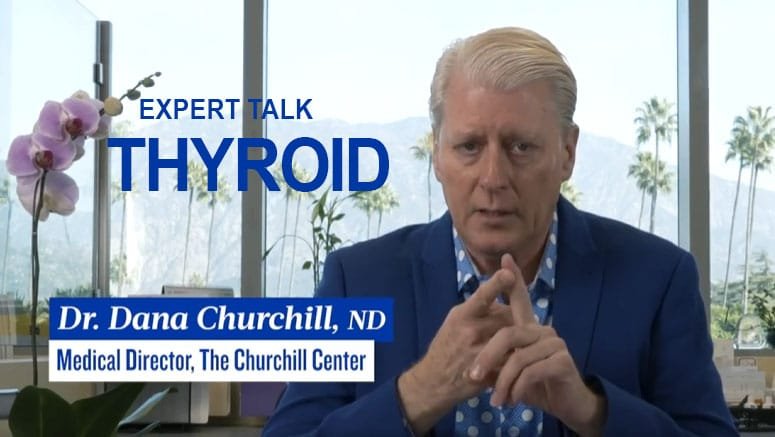
Doctor Shares Why His Patients Don’t Have Heart Attacks | Expert Talk with Dana Churchill, ND
Why Cardiovascular Disease is the Number One Killer in America
Cardiovascular disease is the leading cause of death in America. Total cholesterol is often demonized in modern medicine, but it is important to understand that it is not inherently bad. Cholesterol is essential for hormone production. Lowering cholesterol below levels like 175 or 150 can impair hormone production. My patients who increased their fat intake did not experience heart attacks, chest pain, or other issues. They felt energized because fats provide 50% more energy and cause 50% less oxidation than other macronutrients.
Inadequate Lab Testing
One reason for the prevalence of cardiovascular disease is the inadequacy of standard medical checkups, which typically include only two pages of lab tests. In my clinic, we conduct 10 pages of lab tests at a reasonable cost, covered by PPO insurance. These extensive tests provide a comprehensive baseline, which can be updated annually. Regular checkups typically measure HDL, LDL, total cholesterol, triglycerides, glucose, and sometimes hemoglobin A1C. However, they rarely measure insulin, which is crucial for understanding heart disease.
Comprehensive Lab Assessments
In my approach, we measure multiple types of fats and their fractionations, diet-related factors, arachidonic acid, and anti-inflammatory fats like EPA and DHA from fish oil. Fish oil smooths heart function and prevents blood cell stickiness. High-dose fish oil (3,000 to 5,000 milligrams of EPA and DHA) is essential for therapeutic effects. Additionally, we measure fasting insulin, hemoglobin A1C, and glucose levels. Excess glucose in the blood causes inflammation and plaque buildup in the arteries. Insulin resistance exacerbates this issue, leading to further plaque accumulation.
Cholesterol and Hormone Production
Cholesterol is necessary for hormone production and is not a major cause of heart disease. Consuming more fat does not necessarily raise cholesterol levels. Many patients on ketogenic or high-fat diets feel energized and have no cardiovascular issues. Fats provide more energy and cause less oxidation, leading to less plaque in the arteries, lower cancer risk, and reduced inflammation. For most people, a higher fat and lower carb diet is beneficial, though some may need adjustments due to liver and gallbladder issues.
Nutritional Deficiencies and Cognitive Health
Lack of fats in the diet can contribute to neurological issues like dementia and Alzheimer’s. I recommend good fats such as coconut oil, olive oil, flax oil, and fish oil in smoothies. These fats provide sustained energy and support overall health. Fat is the highest caloric macromolecule, followed by carbohydrates and proteins. Those who have had their gallbladder removed must take bile supplements to properly digest fats, which is crucial for aging well and maintaining quality of life.
The Role of Statins
Statins, commonly prescribed to lower cholesterol, can be dangerous if not paired with coenzyme Q10 (200 milligrams), which is necessary for ATP production and cellular energy. Statins can cause muscle deterioration (rhabdomyolysis) and low energy. One patient who had been on statins for years regained muscle function after discontinuing them. Working with a cardiologist, I use comprehensive lab tests to check cholesterol types, inflammatory markers, and other indicators.
Preventive Measures
Prevention involves more than just lowering cholesterol. It includes managing sugar intake, insulin levels, and ensuring proper fat consumption. Regular exercise, such as 30 minutes of brisk walking three times a week, can significantly reduce the risk of heart attack. Fish oil (3,000+ milligrams of EPA and DHA), magnesium (Trimag), curcumin, and other supplements help maintain heart health.
Innovative Treatments and Diet
Innovative treatments like Beluki (from Chinese medicine) and natokinase (from fermented soy) gently remove plaque from arteries. For severe cases, Plaquex is used to remove fat from the liver and arteries. Addressing heavy metal toxicity, especially mercury, is also crucial. Nitric oxide supplements from beets can enhance vascular health. Artericill, a new product, helps restore the glycocalyx in vessel walls, reducing plaque buildup.
Thyroid Health and Heart Disease
Thyroid health is critical for preventing heart disease. Subclinical hypothyroidism can lead to plaque buildup in arteries. Maintaining optimal thyroid function (TSH below one) improves energy, cholesterol levels, and reduces inflammation. Over time, elevated TSH levels increase the risk of heart attack due to inflamed plaque in the arteries.
In conclusion, comprehensive lab testing, proper diet, and targeted supplements can effectively prevent and manage cardiovascular disease. By addressing underlying causes and ensuring proper nutrient intake, we can significantly reduce the risk of heart attacks and improve overall health.



